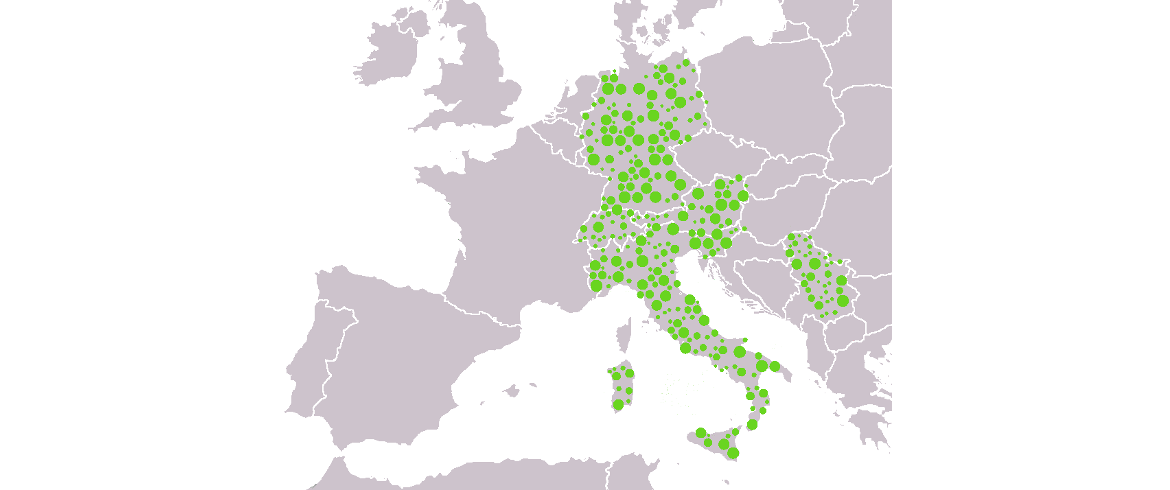The competitiveness of the tourism industry is closely linked to its sustainability. At the same time, the quality of tourist destination is strongly influenced by its natural and cultural environment and its integration with the local community. The need to reconcile economic growth and sustainable development leads to a more responsible tourism.
To say it is the European Commission, which has recently co-funded 6 projects on transnational thematic tourism products contributing to a more sustainable tourism.
One of these is EcoDots, the project presented by the no profit Association “Le città invisibili”, which, starting from “Italy Green Travel”, aims to create a platform to promote sustainable tourism in Europe.
The name of the product will be “Europe Green Travel“, capable of functioning as a catalyst for green accommodations, tour operators, routes and local communities. The aim is to connect responsible travellers with entrepreneurs who are investing in a better future. “Europe Green Travel” will be the community for the sustainable tourism in Europe, that shares similar values, visions and agreed standards of sustainability.
“Green Travel Europe” will be the meeting point between travelers and responsible for small and medium businesses in the tourism sector who are investing in a better future.
To do this, you will create an innovative network of eco accommodations and sustainable journeys in Italy, Austria, Switzerland, Germany, Slovenia and Serbia.
EcoDots aims to promote sustainable tourism in Europe, involving small accommodations, B&Bs, farmhouses in a green network, to share their visions of ecotourism, to increase their visibility in the market, and to disseminate a system of best practices.
For this reason, EcoDots project, coordinated by the associations Le Città Invisibili, has institutional and private partners: the German association KATE (Germany) who has been dealing with environmental certifications; the Josef Stefan Institute specializes in artificial intelligence (Slovenia); the research center EcoDev (Serbia); the Municipality of Parma; the small italian enterprise Le Orme nel Parco; the Institute of Studies for the Integration of Systems ISIS (Italy), and the Serbian Ministry of Economy and Finance.
The other 5 winning projects of the EU ban are: “Prowell“, an interesting project to integrate wellness and rural tourism in northern Europe, “EuroVelo 13“, a network of cycle paths to explore the northern Europe on two wheels, “EuroVelo 8“, a cycle route through 7 countries of the Mediterranean area, “Tastes of Teppist“, a tourist route and food among ancient monasteries of northern Europe, and “The Roman Emperors Route“, a cultural tour in the Danube region.
More information on the European Commission website dedicated to sustainable tourism
You might also like:
How do cruise ships impact on the environment
Bike riding: the future of sustainable tourism
No country for bikers and France thinks of paying commuters by bike
